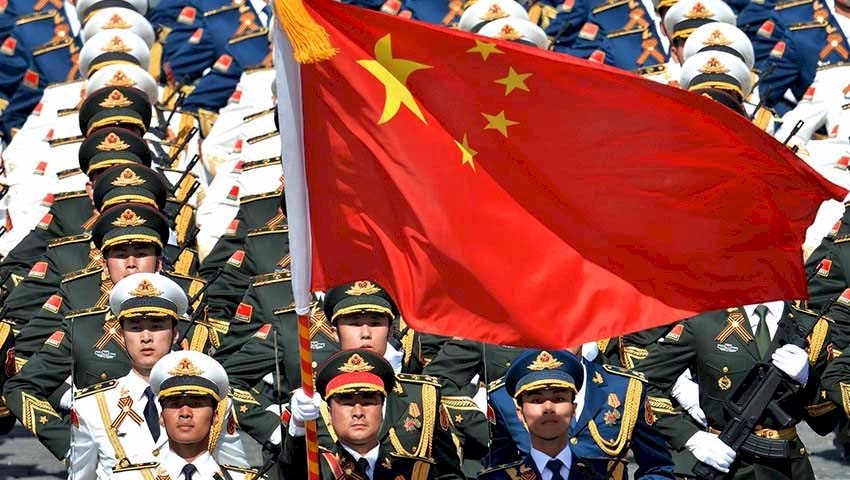Liberal democracies must be on guard against Beijing’s attempts to garner influence on the international stage through the infiltration of established global institutions, one analyst warns.
To continue reading the rest of this article, please log in.
Create free account to get unlimited news articles and more!
In 1967, communist activist Rudi Dutschke described a Marxist strategy aimed at subverting democratic principles by slowly infiltrating organisations across the public and private sectors as a ‘long march through the institutions’ — a reference to the Red Army’s ‘long march’ through mainland China in the 1930s.
According to Dr Jon Lee, non-resident senior fellow at the United States Studies Centre, the Chinese Communist Party (CCP) is employing this same strategy on the global scale, filling “prominent and obscure” global institutions with its own officials to “undermine liberal values”.
Dr Lee notes Beijing’s reported influence over the World Health Organisation (WHO) to “unquestioningly promote its dishonest account” during the onset of the COVID-19 crisis, and its attempts to redefine human rights in a bid to “deflect attention away” from abuses of religious and ethnic minorities
The CCP has also been accused of influencing the UNESCO World Heritage Committee’s recent recommendation to add the Great Barrier Reef to its “in danger” list, which Dr Lee suspects could be yet another retaliation in response to Australia’s vocal resistance to Chinese coercion.
“Beijing has, predictably, denied this [but] in any case, the fracas is a reminder that Chinese-dominated global institutions will work very differently from the US and European-dominated entities we are accustomed to,” Dr Lee writes.
CCP leadership, he adds, has increasingly emphasised the link between setting the agenda, changing norms and standards, and “exercising control within and over even ostensibly non-political international institutions”, in a bid to bolster comprehensive national power (CNP).
Dr Lee points to Beijing’s subversion of some of the United Nation’s 15 specialised agencies, which include the International Monetary Fund, World Bank and WHO.
“The first two tend to be dominated by agendas set by Americans and Europeans, which is why China puts more emphasis on recently created institutions such as the Asian Infrastructure Investment Bank,” he says.
“But China has made enormous progress when it comes to the other agencies.”
The analyst observes that there is a Chinese director in four agencies overseeing food and agriculture, industrial development, civil aviation and telecommunications, along with deputies in nine other agencies overseeing agricultural development financing, international tourism, global meteorology and UNESCO.
Beijing also proposed a candidate for the leadership of the UN World Intellectual Property Organisation (WIPO), losing out to Singapore.
Dr Lee writes that some observers might welcome China’s increasing involvement in international organisations as evidence that it’s “rising within the existing global order”, but warns of the potential consequences of handing such authority to a power with a fundamentally different ideology.
“The problem is the growing divergence between China’s interests, values and procedures against those of Australia’s and other countries explicitly supportive of the rules-based order,” he adds.
“For example, would we be comfortable if the next director-general of WHO was a hand-picked official of Beijing’s, given it was China’s opaque institutions and practices that heavily contributed to the global pandemic?
“Knowing what we do about the systematic state-sanctioned and supported nature of intellectual property theft perpetrated by China, electing Beijing’s choice as the next director of the WIPO would be like letting the proverbial fox loose in the hen house.”
Dr Lee also points to the Chinese director-general of the UN’s International Communications Union’s proposition of a new internet protocol idea for the world, built by Chinese firms such as Huawei, which could “entrench a system of top-down supervision and enforcement” by the government.
“In other words, it would come closer to replicating the way the internet works inside China,” he adds.
Dr Lee warns that if the Great Barrier Reef is formally ruled as being “in danger” by the World Heritage Committee, it could signal the weaponisation of an apolitical institution.
“To be clear, the worry is not the personal competency of Chinese officials, many of whom are eminently qualified [and] it is not as if all officials from liberal democracies in these organisations are exemplary,” he continues.
“In addition to the authoritarian value system that Chinese candidates owe allegiance to, the difference is that there are limits on the extent to which democratic leaders can politicise and weaponise technical and expert global bodies.
“Elected leaders could try but would encounter serious domestic and external resistance immediately. In contrast, the leadership of the Chinese Communist Party is under no such constraints.”
According to Dr Lee, China believes using any means necessary to undermine liberal values and institutions or advance its agenda is an extension of its CNP and statecraft.
“By Beijing’s own power index, America is still far ahead when it comes to impact and influence in international institutions, even if the possible 'in danger' listing of the Barrier Reef is an indication of rising Chinese clout,” Dr Lee adds.
While acknowledging that the former Trump administration “was the first to truly take competition with China seriously”, he claims that it “weakened its advantage” by withdrawing from global institutions like the WHO.
“It was only in the second half of Donald Trump’s presidency that specific plans were being considered to reverse that error,” Dr Lee adds.
He concludes: “In accepting the reality that comprehensive competition is necessary and occurring, one hopes the Biden administration will not make the same mistake.”
Get involved with the discussion and let us know your thoughts on Australia's future role and position in the Indo-Pacific region and what you would like to see from Australia's political leaders in terms of partisan and bipartisan agenda setting in the comments section below, or get in touch with

 Login
Login







